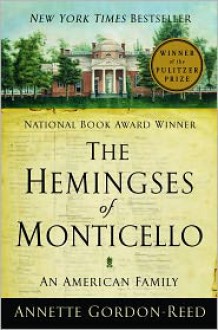Winner of the National Book Award and the Pulitzer Prize: “[A] commanding and important book.”—Jill Lepore, The New YorkerIn the mid-1700s the English captain of a trading ship that made runs between England and the Virginia colony fathered a child by an enslaved woman living near Williamsburg....
show more
Winner of the National Book Award and the Pulitzer Prize: “[A] commanding and important book.”—Jill Lepore, The New YorkerIn the mid-1700s the English captain of a trading ship that made runs between England and the Virginia colony fathered a child by an enslaved woman living near Williamsburg. The woman, whose name is unknown and who is believed to have been born in Africa, was owned by the Eppeses, a prominent Virginia family. The captain, whose surname was Hemings, and the woman had a daughter. They named her Elizabeth.So begins this epic work—named a best book of the year by the Washington Post, Time, the Los Angeles Times, Amazon.com, the San Francisco Chronicle, and a notable book by the New York Times—Annette Gordon-Reed’s “riveting history” of the Hemings family, whose story comes to vivid life in this brilliantly researched and deeply moving work. Gordon-Reed, author of the highly acclaimed historiography Thomas Jefferson and Sally Hemings: An American Controversy, unearths startling new information about the Hemingses, Jefferson, and his white family. Although the book presents the most detailed and richly drawn portrait ever written of Sarah Hemings, better known by her nickname Sally, who bore seven children by Jefferson over the course of their thirty-eight-year liaison, The Hemingses of Monticello tells more than the story of her life with Jefferson and their children. The Hemingses as a whole take their rightful place in the narrative of the family’s extraordinary engagement with one of history’s most important figures.Not only do we meet Elizabeth Hemings—the family matriarch and mother to twelve children, six by John Wayles, a poor English immigrant who rose to great wealth in the Virginia colony—but we follow the Hemings family as they become the property of Jefferson through his marriage to
show less






 15 years ago
15 years ago